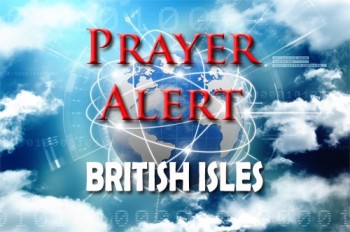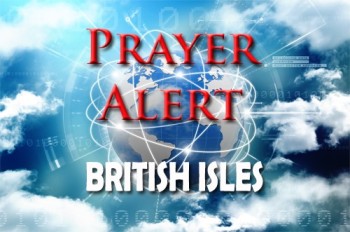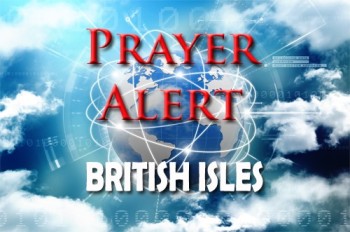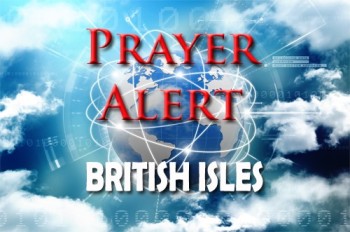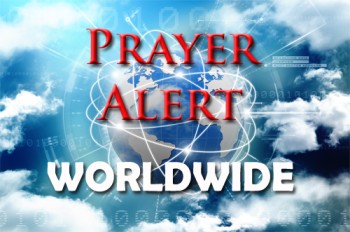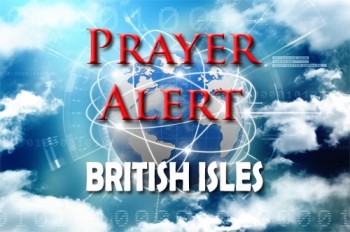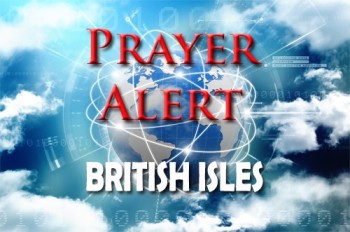Displaying items by tag: church
Farage says Church leaders 'out of touch' on immigration issue
Reform UK leader Nigel Farage has defended his hardline immigration plan, ‘Operation Restoring Justice’, which would see all illegal Channel crossings - including those by women and children - met with deportation if his party won power. He argued that the proposals align with Britain’s Judeo-Christian heritage, despite opposition from Church leaders, whom he accused of being 'out of touch' with ordinary believers. Farage suggested that criticism from bishops and 'The Establishment' was inevitable, but insisted meaningful change often comes through struggle. His plan includes withdrawing from the European Convention on Human Rights, scrapping the Human Rights Act, and suspending treaties used by courts to block deportations. Labour dismissed the proposals as an 'unworkable gimmick,' while Conservative leader Kemi Badenoch accused Reform of copying Tory policies. The announcement follows rising protests near asylum seeker accommodation and record asylum claims in 2024. Reform UK claims it could deport up to 600,000 people in its first term. See
USA: church’s Ramen shop gives love of Jesus in a bowl
In a quiet corner of Sequim, Washington State, a church-run Ramen shop is offering more than food—it’s serving love, dignity, and the presence of Jesus. Designed as a 'pay-what-you-can' eatery, the space hums with peace and welcome. Visitors from all walks of life - students, elderly neighbours, the homeless - gather to enjoy nourishing meals in an atmosphere of grace. Each guest chooses their own broth, toppings, grains and greens, reclaiming choice where it’s often lost. Behind the counter, a pastor-chef and volunteers serve up bowls of care and compassion, sustained by generous patrons who 'pay it forward’. It’s an economy of grace, where no one is turned away, and everyone is treated with honour. The building itself feels soaked in prayer, a sanctuary where the love of Jesus is tangible. The Ramen Shop isn’t just feeding stomachs; it’s restoring souls - offering sanctuary, table fellowship, and the quiet declaration: you belong.
Wales: sexual abuse claims against former bishop and vicar
The Church in Wales faces deepening scandal as fresh historical sexual abuse allegations emerge against former bishop Anthony Pierce, already jailed earlier this year for child sexual abuse, and an unnamed former vicar. BBC Wales said that warnings about Pierce’s predatory behaviour surfaced as early as 1986, yet he rose to become Bishop of Swansea and Brecon in 1999. Survivors like Alisdair Adams, who endured unwanted sexual advances, question how he advanced within church ranks despite earlier concerns. Other victims described how Pierce’s inaction allowed further abuse, such as that perpetrated by choirmaster David Gedge. Additional testimony highlighted a culture of secrecy, intimidation, and institutional protectionism, with victims and whistleblowers often silenced or discouraged from speaking out. Calls are mounting for an independent inquiry to investigate the Church’s failures. In response, the Church in Wales has apologised, pledging a comprehensive safeguarding audit and cultural review to restore trust. However, survivors remain sceptical, fearing systemic issues persist beneath public assurances of reform and accountability.
Armenia: bitter dispute escalates between PM and the church
A deepening rift between prime minister Nikol Pashinyan and the Apostolic Church, is threatening to polarise the nation of three million. Tensions erupted after Pashinyan accused Catholicos Karekin II, the Church’s spiritual head, of fathering a child and supporting a coup plot, allegations Karekin denies. The conflict, rooted partly in fallout from Armenia’s 2020 defeat in the Nagorno-Karabakh war, has escalated with arrests of senior clergy and opposition figures, sparking alarms over religious freedom and national unity. Church bells rang an alarm at St Echmiadzin, historically reserved for invasions, signalling the detention of Archbishop Mikael Adjapakhyan, who was later arrested alongside others accused of plotting a coup. The dispute intertwines personal grievances, political rivalries, and historical tensions linked to the powerful 'Karabakh clan'. The World Council of Churches has voiced deep concern, calling for wisdom and justice to prevail. Meanwhile, Armenians fear the confrontation may fracture their society further, both politically and spiritually. See
‘On God's ground': Bradford church's creative solution to rough sleeping
St Stephen’s Church, Bradford, has found a creative and compassionate way to care for the homeless - by installing a lockable sleeping pod on its grounds. The initiative, in partnership with Shine and Hope Housing, offers more than shelter: it provides dignity, safety, and community. The pod includes a bed and toilet; guests also have access to showers and hot meals through the church. All guests are referred through trusted homeless organisations, and although designed for temporary stays, many have used the pod longer while awaiting permanent housing. Michelle, a mother recovering from years of addiction, credits the pod for helping her stay clean, describing it as a sanctuary where she feels safe and 'on God's ground'. Apart from shelter, the church offers lasting friendship and spiritual support. Some former guests have even become part of the church family. St Stephen’s demonstrates that true Christian compassion includes walking alongside the vulnerable, offering not just practical help, but long-term love, restoration, and hope in Christ.
Chaplain fired for beliefs wins full retrial
Rev Bernard Randall, a former chaplain at Trent College in the UK, has been granted a full retrial after a court overturned a 2022 ruling which upheld his dismissal. He was removed from his position after delivering a 2019 sermon encouraging students to debate and engage critically with LGBT teachings introduced at the school. The controversy began when the school adopted guidance from Educate and Celebrate, an organisation aimed at embedding gender identity and sexual orientation into school culture. In response, Randall told students that they should not feel compelled to accept ideologies conflicting with their religious beliefs. He was then dismissed, reported to a government counter-terrorism programme, and barred from ministry within the Church of England. Supported by the Christian Legal Centre (CLC), Randall filed a lawsuit in 2021 alleging discrimination and unfair dismissal. The initial tribunal ruled against him; however, the recent decision by Judge James Tayler found evidence of anti-Christian bias in the original panel, leading to the retrial.
Anglicans in Wales urged to revisit same-sex blessings decision
The Church in Wales is set to reconsider its stance on same-sex blessings, with the experimental provision allowing blessings for same-sex couples due to expire in September 2026. While the Church still does not permit same-sex marriage, the blessing service was introduced in 2021 as a compromise, allowing clergy to decide individually whether to conduct such services. The Archbishop of Wales, Most Rev Andrew John, has called for prayerful and open discussions as the denomination discerns its next steps. A series of meetings will be held across Wales, providing clergy and congregants a chance to share their perspectives. Options under consideration include ending the practice, extending it, or introducing a formal service of same-sex marriage within the Church. The Archbishop emphasised the need for respectful engagement with one another, Scripture, and tradition. The Scottish Episcopal Church already permits same-sex marriage, as do the Quakers, Unitarians, and the United Reformed Church.
Peru: Pope Francis dissolves Catholic movement
Pope Francis has dissolved the Sodalitium Christianae Vitae (SCV), a Peruvian-based Catholic movement, after a Vatican investigation exposed years of abuse by its founder, Luis Figari, and other leaders. The probe revealed sexual, spiritual, and financial abuses, along with misuse of church funds. The SCV, founded in 1971 as a conservative reaction to liberation theology, once had 20,000 members across South America and the USA. Victims accused Figari of sodomy, psychological abuse, and exploitation. After failed reforms, Francis ordered an investigation which uncovered systemic abuses. Figari and ten top members were expelled, but calls for reparations remain unanswered. Victims praised the dissolution as a step toward justice.
Archbishop says Church must 'be changed' over abuse
The Archbishop of York, Stephen Cottrell, called for transformative change in the CofE during his Christmas sermon, amid ongoing criticism over abuse scandals. Justin Welby resigned in November following backlash over his handling of prolific abuser John Smyth. Cottrell, set to assume leadership on 6 January, acknowledged the Church’s failures and emphasised the need for justice, humility, and action. His remarks drew mixed reactions. While he urged the Church to 'kneel in penitence' and focus on supporting vulnerable groups, some survivors criticised his leadership. One victim expressed dismay over his involvement with priest David Tudor, who faced abuse allegations but continued serving for years under Cottrell’s oversight. Local clergy reported frustration among parishioners: Rev Matt Woodcock of St Stephen’s Church, York stressed the need for reassurance at the community level, despite widespread disappointment in national leadership.
Britain's 'spiritual desert' and obesity crisis
Former MP Jacob Rees-Mogg has addressed Boris Johnson’s claim linking Britain’s obesity crisis to the Church of England’s focus on anti-colonialism. He noted the nation’s obesity issues but stopped short of directly blaming the Church. Johnson had argued that Britons are 'gorging themselves' on consumerism, likening it to 'living bread' but detached from spiritual nourishment, referencing Matthew 4:4. Rees-Mogg described Johnson’s comments as highlighting a deeper issue: Britain’s spiritual void. One comment was that Johnson’s analysis was an 'imaginative exercise' rather than a causal connection. Both men agreed that mainline denominations are not adequately addressing this spiritual hunger. Rees-Mogg emphasized the need for churches to proclaim Christ’s love more fervently to fill the void. This discussion sheds light on the perceived spiritual and moral challenges facing the UK, which may lead churches to re-evaluate their role in addressing societal needs.
